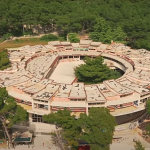At the recent “3T – Tourism, Travel and Techn” conference in Zagreb on March 30, 2017, TCN caught up with Oleg Maštruko, director of the conference, who was happy to answer a few questions.
How did you come up with the idea of organizing the “3T – Tourism, Travel & Tech” conference? How did you recognize the importance of these two industries?
The idea came naturally, given the fact tourism is the most prosperous Croatian industry, with 18% share in GDP, more than any other industry and definitely more than the share of tourism in GDP of some other EU countries, usually perceived as tourists destination, such as Cyprus and Malta.
On the other hand, the IT industry is the one we all expect much from but somehow it seems it has still not achieved its full potential. Both industries have their participants closed in their own circles. Because of this, the idea for the 3T conference came as a place for networking, communication and exchange of ideas between the two important industries which need to start communicating more with each other.
Do you believe that tourism in the future will depend much more on technology than now?
Definitely. Tourism will depend on technology on both ends. From hi tech tourism on the one hand, to the elements of the tourist offer, which will deliberately target people who want to get away from technology. This running away from technology is, in a way, the impact of the technology we have today. Finally, some travellers might want a mix of both. We already have innovative ideas that combine tourism and travel technology, which was something hard to imagine ten years ago, but now we have dozens of apps and websites that change the way of traveling.
What is the future of tourism in Croatia in relation to the development of new technologies?
I’m pretty sure it’s going to be good. We have innovative, reliable and young IT companies, but also plenty of senior companies on the IT scene. Tourism workers don’t always understand the importance of technology, but among other things, this conference is a good place for them to learn how to implement technology in their tourism businesses. A special problem are the state regulations – this will have to change or we will fall behind more technology oriented countries.
How would you compare the development of tourism in Croatia in relation to the world?
I travel a lot and I can say the tourism in Croatia doesn’t fall much behind global tourism trends. We do not offer anything special, neither good nor bad. Despite the headlines in the media during the summer – we are not particularly expensive nor particularly cheap. I do notice some downsides in the tourism offer, or at least visible successes in the MICE segment – the organisation of business conferences and presentations, although there were cases when large global corporations chose the Croatian coast as the perfect location for global presentation of their products. Events like those are an excellent promotion for Croatia. Another thing which Croatian tourism lacks is adventure tourism, which can cover not only Croatia but the whole region. A good example is company ADV Adventure Driven Vacations, who participated in our conference, and they offer things like free climbing, parachute jumps and similar.
At the same time, places like Vis have huge potential to develop historical or military tourism where people could see all the historical artefacts and buildings used by the military in a previous era. This works on Vis, but for some other places, it is still a bit strange have activities like this. There are a lot of “weirdos” out there who want to see something different and who need activities rather than plain sun and sea vacation.
How did you come up with the idea of organizing the “3T – Tourism, Travel & Tech” conference? How did you recognize the importance of these two industries?
The idea came naturally, given the fact tourism is the most prosperous Croatian industry, with 18% share in GDP, more than any other industry and definitely more than the share of tourism in GDP of some other EU countries, usually perceived as tourists destination, such as Cyprus and Malta.
On the other hand, the IT industry is the one we all expect much from but somehow it seems it has still not achieved its full potential. Both industries have their participants closed in their own circles. Because of this, the idea for the 3T conference came as a place for networking, communication and exchange of ideas between the two important industries which need to start communicating more with each other.
Do you believe that tourism in the future will depend much more on technology than now?
Definitely. Tourism will depend on technology on both ends. From hi tech tourism on the one hand, to the elements of the tourist offer, which will deliberately target people who want to get away from technology. This running away from technology is, in a way, the impact of the technology we have today. Finally, some travellers might want a mix of both. We already have innovative ideas that combine tourism and travel technology, which was something hard to imagine ten years ago, but now we have dozens of apps and websites that change the way of traveling.
What is the future of tourism in Croatia in relation to the development of new technologies?
I’m pretty sure it’s going to be good. We have innovative, reliable and young IT companies, but also plenty of senior companies on the IT scene. Tourism workers don’t always understand the importance of technology, but among other things, this conference is a good place for them to learn how to implement technology in their tourism businesses. A special problem are the state regulations – this will have to change or we will fall behind more technology oriented countries.
How would you compare the development of tourism in Croatia in relation to the world?
I travel a lot and I can say the tourism in Croatia doesn’t fall much behind global tourism trends. We do not offer anything special, neither good nor bad. Despite the headlines in the media during the summer – we are not particularly expensive nor particularly cheap. I do notice some downsides in the tourism offer, or at least visible successes in the MICE segment – the organisation of business conferences and presentations, although there were cases when large global corporations chose the Croatian coast as the perfect location for global presentation of their products. Events like those are an excellent promotion for Croatia. Another thing which Croatian tourism lacks is adventure tourism, which can cover not only Croatia but the whole region. A good example is company ADV Adventure Driven Vacations, who participated in our conference, and they offer things like free climbing, parachute jumps and similar.
At the same time, places like Vis have huge potential to develop historical or military tourism where people could see all the historical artefacts and buildings used by the military in a previous era. This works on Vis, but for some other places, it is still a bit strange have activities like this. There are a lot of “weirdos” out there who want to see something different and who need activities rather than plain sun and sea vacation.








